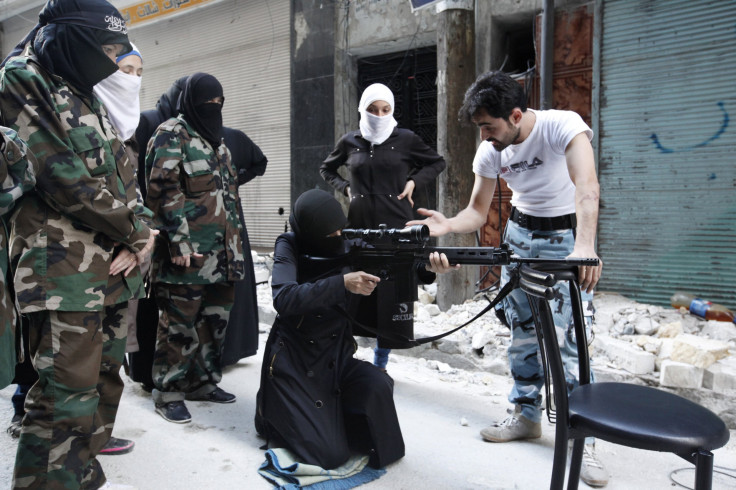New Report Claims Photographic Evidence Of Syrian Regime's Brutality In Torturing And Killing Thousands; Images Reminiscent Of Holocaust, Author Says

Even as the United Nations and member countries prepare to broker a peace deal and a transition government to end a years-long bloody civil war in Syria, a new report claims Bashar Assad’s regime could be guilty of torturing and killing 11,000 people.
The confidential report, initially released to the Guardian and CNN, uses interviews with, and information and photos supplied by, “Caesar,” a defector from the Syrian government’s military to find “signs of starvation, brutal beatings, strangulation, and other forms of torture and killing.” According to the report, which was commissioned by London-based law firm Carter-Ruck and Co., its findings are based on 55,000 photographs taken by the defector and his colleagues of about 11,000 detainees.
"These photos – if authentic – suggest that we may have only scratched the surface of the horrific extent of torture in Syria's notorious dungeons,” Nadim Houry of Human Rights Watch told the Guardian.
The report was authored by a panel including Desmond de Silva, the former Chief Prosecutor of the Special Court for Sierra Leone; Sir Geoffrey Nice, former lead prosecutor of ex-President Slobodan Milosevic of Yugoslavia before the International Criminal Tribunal; and David M. Crane, first Chief Prosecutor of the Special Court for Sierra Leone.
De Silva told the Guardian that the report presented evidence of “industrial-scale killing,” adding: "This is a smoking gun of a kind we didn't have before. It makes a very strong case indeed." And, in an interview with CNN, de Silva said the photos were "reminiscent of the pictures of those [who] were found still alive in the Nazi death camps after World War II."
The latest report could hurt the outcome of the talks between Assad’s government and opposition forces, scheduled to begin Wednesday in Switzerland, according to a U.S. administration official who spoke to the Guardian Monday.
“These latest reports, and the photographs…demonstrate just how far the regime is willing to go to not only deny freedom and dignity to the Syrian people, but to inflict significant emotional and physical pain in the process.”
“We condemn in the strongest possible terms the actions of the regime and call on it to adhere to international obligations with respect to the treatment of prisoners,” the official said, and called on the Syrian government to immediately permit the investigation of its detention facilities by international organizations such as the U.N. Commission of Inquiry on Syria.
Crane, one of the report’s authors, told CNN: "Any prosecutor would like this kind of evidence -- the photos and the process. This is direct evidence of the regime's killing machine."
However, it could be a challenge to prosecute Assad and other members of his regime at the international criminal court in The Hague, the Guardian reported, because Syria is not a member of the court, and the court's requirement of a referral by the U.N. Security Council might not be supported by the U.S. and UK, or it could be blocked by Russia, which is Syria's close ally.
"It would not necessarily be possible to track back with any degree of certainty to the head of state," Nice, one of the report's co-authors, told the Guardian, adding that the widespread and systematic nature of the atrocities "meant that the pattern of behaviour would have been approved at a high level."
"But whether you can go beyond that and say it must be head of state-approved is rather more difficult. But 'widespread and systematic' does betoken government control," Nice said.
© Copyright IBTimes 2025. All rights reserved.






















